Nepali mercenaries lured to fight for Russia in Ukraine
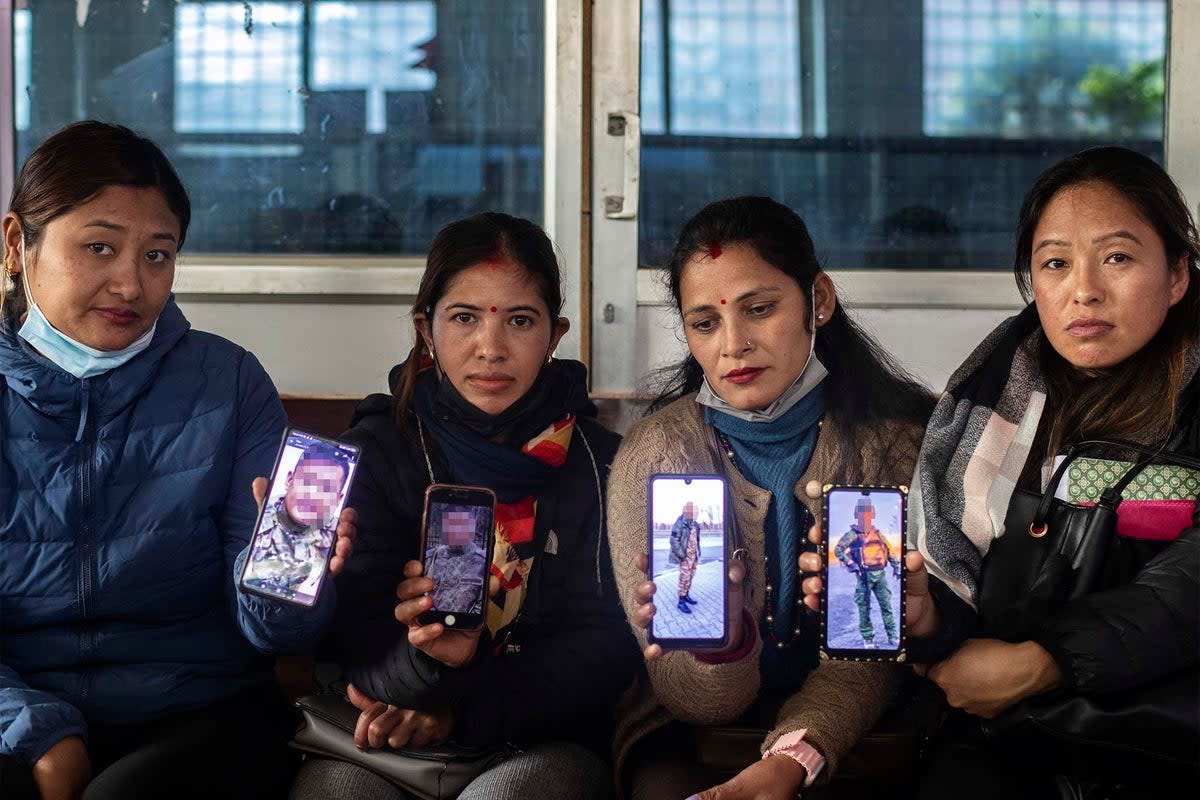
As family and friends look on in silence, Buddi Naryan Aryal and his nephew Raju wrap and bind leaves of Kush grass – which is sacred to Hindus – into an effigy for the funeral for Hari Aryal.
Hari, 23, a former Nepalese army soldier who was born in Waling, a village in the Himalayan foothills in western Nepal, died thousands of miles from home, killed on 5 December 2023 on the front lines of Russia’s war in Ukraine.
“He resigned from the Nepal army hoping to land a job with the German or Dubai police [...] In the end, he found a job in the Russian army through human traffickers,” his uncle, Buddi Naryan, tells EPA Images.
His family heard from the Nepal foreign ministry on 2 January that Hari had died in an ambush in December, less than two months after enlisting.
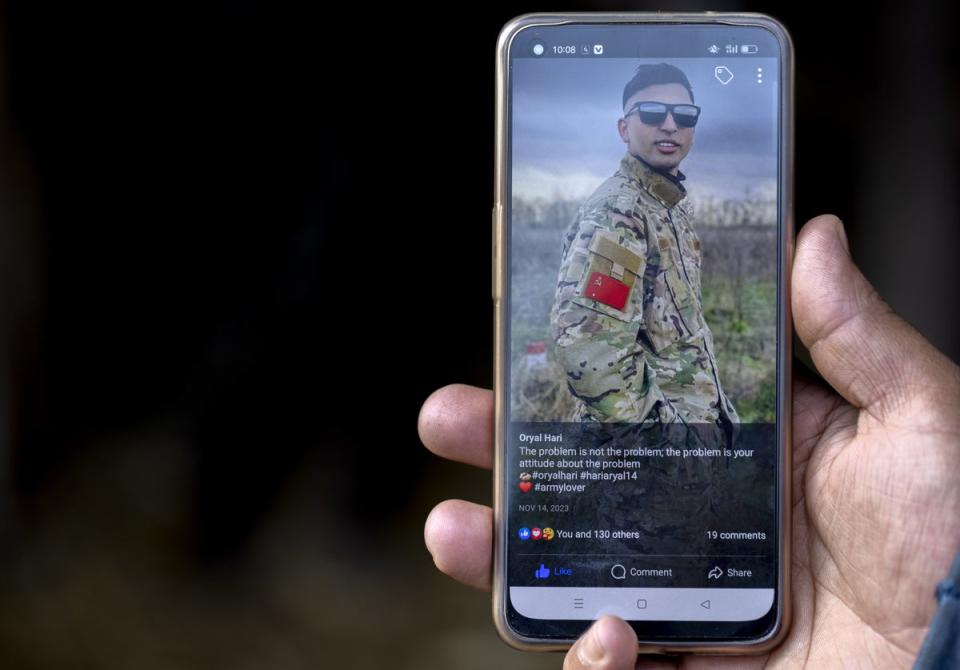
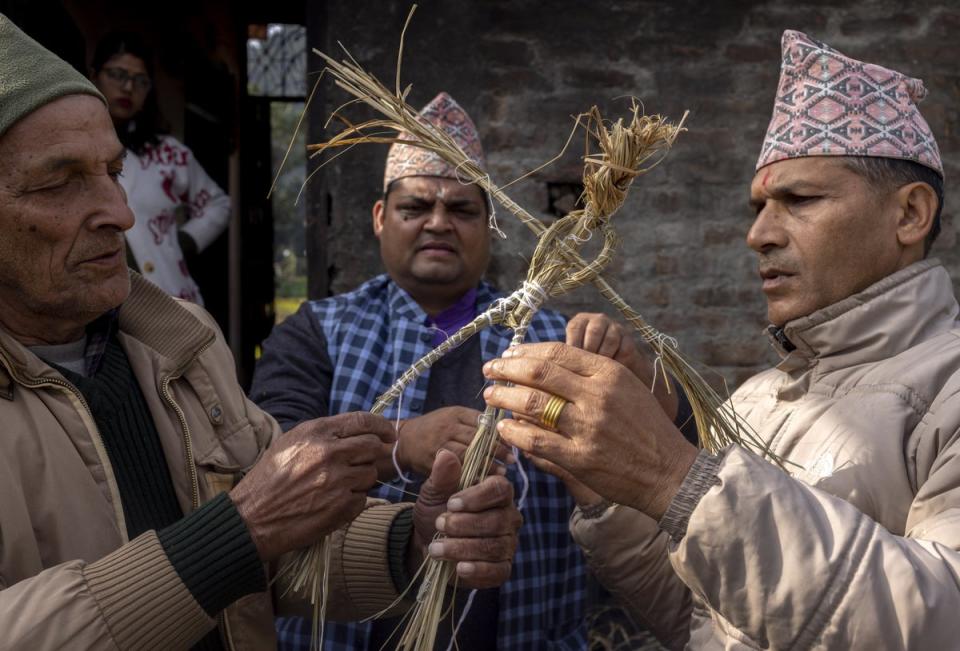
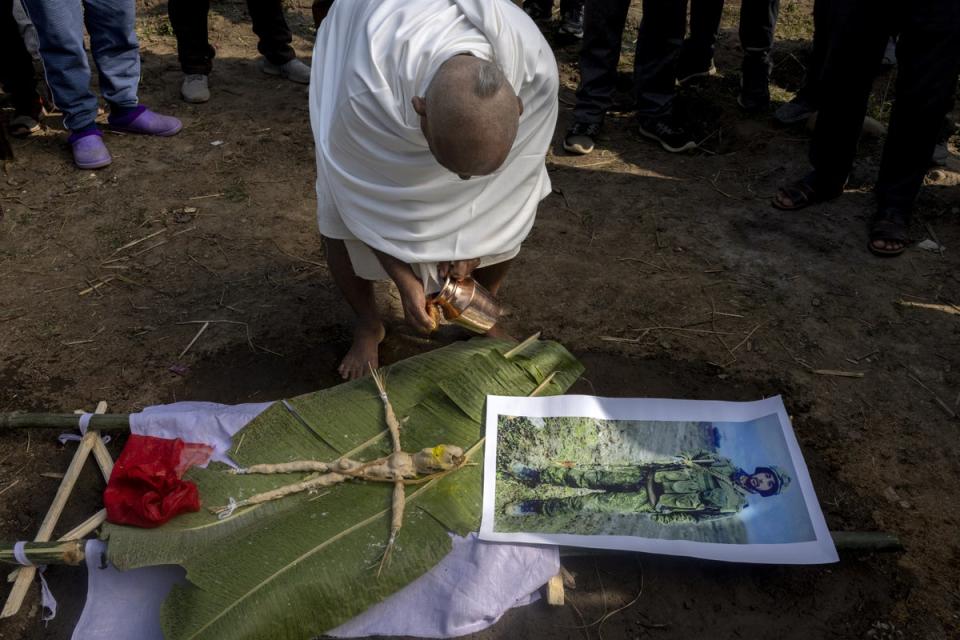
“Hari used to say that he would return from Russia after earning money and would build a new home,” he says. “That day never came.”
Nepalese authorities have confirmed in a press statement that at least 14 of its citizens have died since the invasion began on 24 February 2022, although some reports suggest the real toll could be far higher.
Citing “various news sources and returnees from Russia”, former foreign minister and member of parliament Dr Bimala Rai Paudyal told EPA over the phone that as many as 15,000 Nepalis have enlisted with the Russian military.
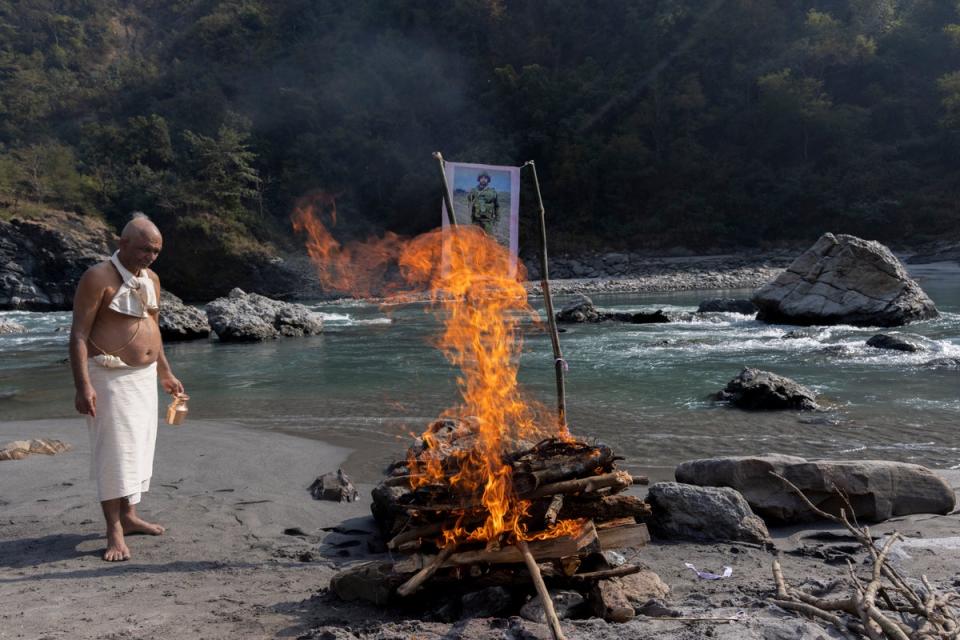
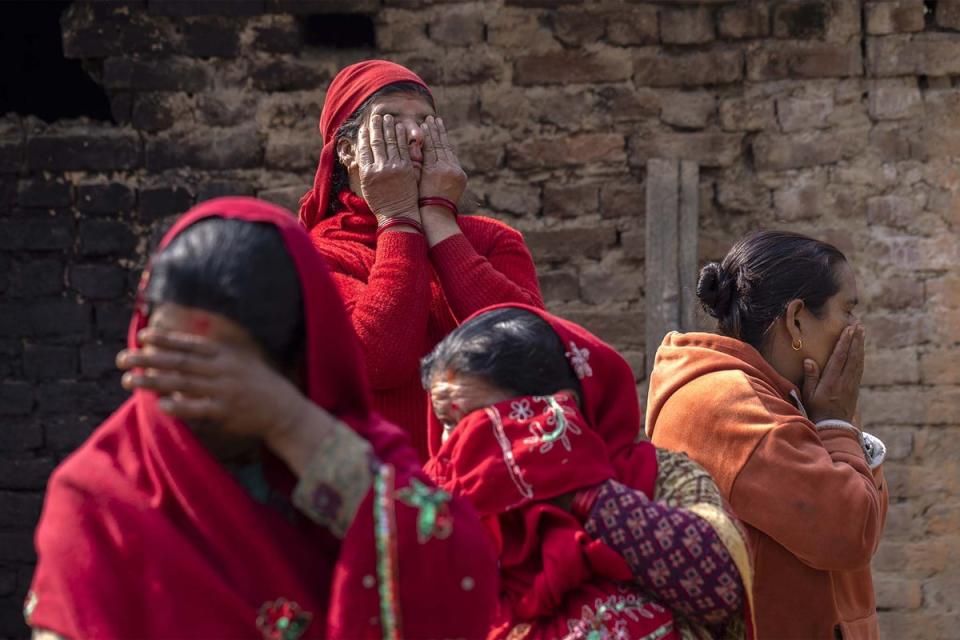
The relatives of more than 150 Nepali mercenaries fighting with the Russian army have filed requests appealing to the consular department after losing contact with their relatives.
Nepal has since, on 5 January 2024, banned its citizens from travelling to Russia or Ukraine and has also asked Russia to repatriate all Nepalis who were recruited for the conflict.
Krishna Sharma (named changed), originally from Parbat in west Nepal, worked for two years as a migrant labourer in Qatar and Saudi Arabia.
After returning home to Nepal in 2018, he found himself saddled by family debts of around 2.2 million rupees (£13,000).
Sharma heard that enlisting with the Russian army could help him pay off those debts. A “middleman” told him he would earn 95,000 roubles per month if he joined the Kremlin’s military campaign. He paid a trafficker around £4,000, and within a week had obtained an entry visa.
After arriving in Russia, his 27-man unit – all Nepali soldiers except for the Russian commander – were immediately deployed to the Ukraine front.


Sharma says he was lucky to escape with his life on his unit’s first day of battle, in which he was severely wounded in a drone attack. He only survived by pretending to be dead and covering himself with “mud and snow.”
After the attack, he told EPA that he spent the night inside a burnt tank. He eventually reached a Wagner Group camp before being transferred to hospital.
“There, someone provided substantial assistance, including giving me clothes and helping me contact my family. This kind person also facilitated my visit to the Nepalese embassy, which expedited the issuance of a 24-hour travel document,” Sharma says.
Now back in Pokhara, Nepal, he is being treated in hospital to remove grenade fragments still embedded in his chest.
Despite the injuries he sustained during his brief but harrowing experience in eastern Ukraine, Sharma is one of the few Nepali recruits lucky enough to make it home.
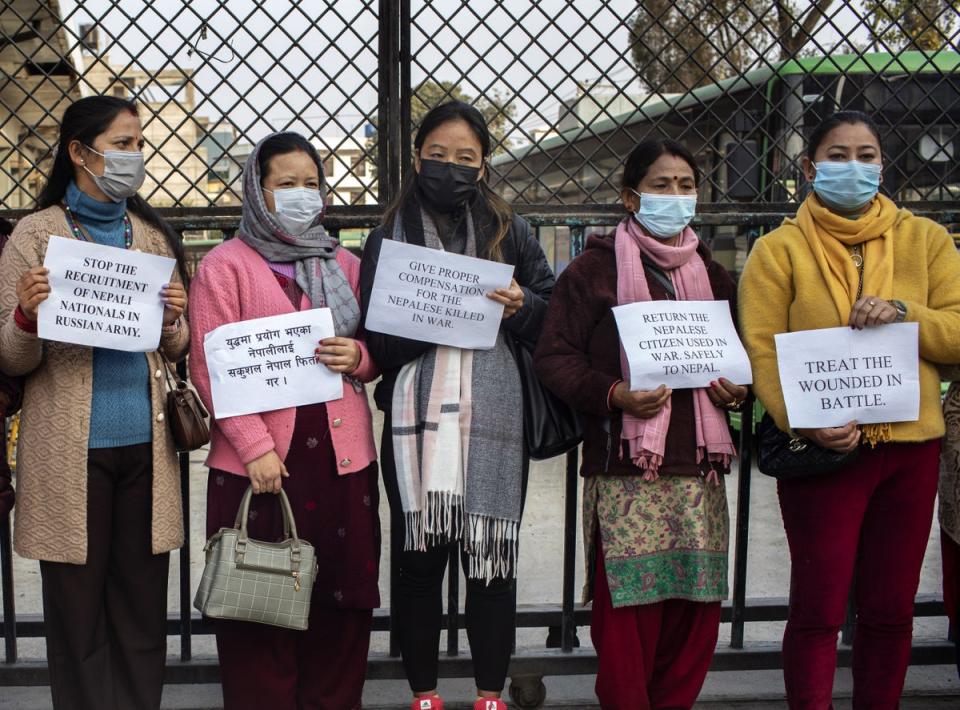
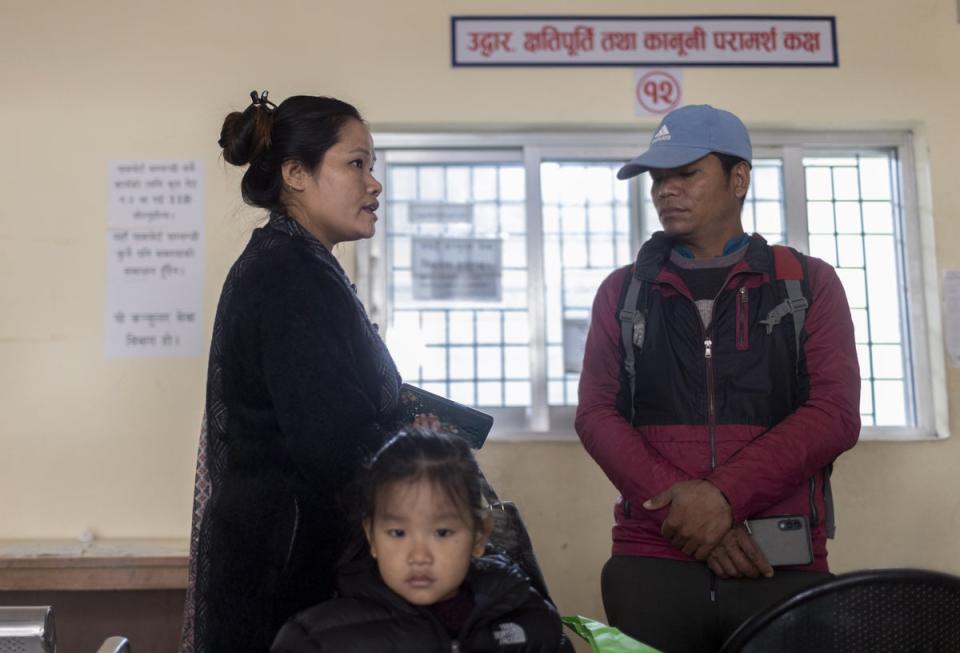
Sanu Kanchi’s husband Suresh Tumpabe – also a former Nepalese army soldier – signed up for the Kremlin’s “special military operation” in October, and is still stuck in Donetsk in occupied eastern Ukraine.
Sanu has also appealed to the Nepalese foreign office’s consular department seeking her husband’s safe return. Sanu told EPA that they were ill-informed about the severity of the war, but had heard that the salary was good and that within a year, the entire family would obtain permanent residence in Russia.
“It has been four months since he entered the red zone to fight for Russia. I’m in constant contact with him over WhatsApp. He is still alive, and he is desperate to return home,” she adds.
Suresh signed a one-year contract with the Russian army and cannot pull out until the contract ends.
“It was a mistake to join the Russian army amid the ongoing war. If we make it, we’ll meet again. If not, goodbye,” Suresh told his wife in a voice message.
EPA Images


